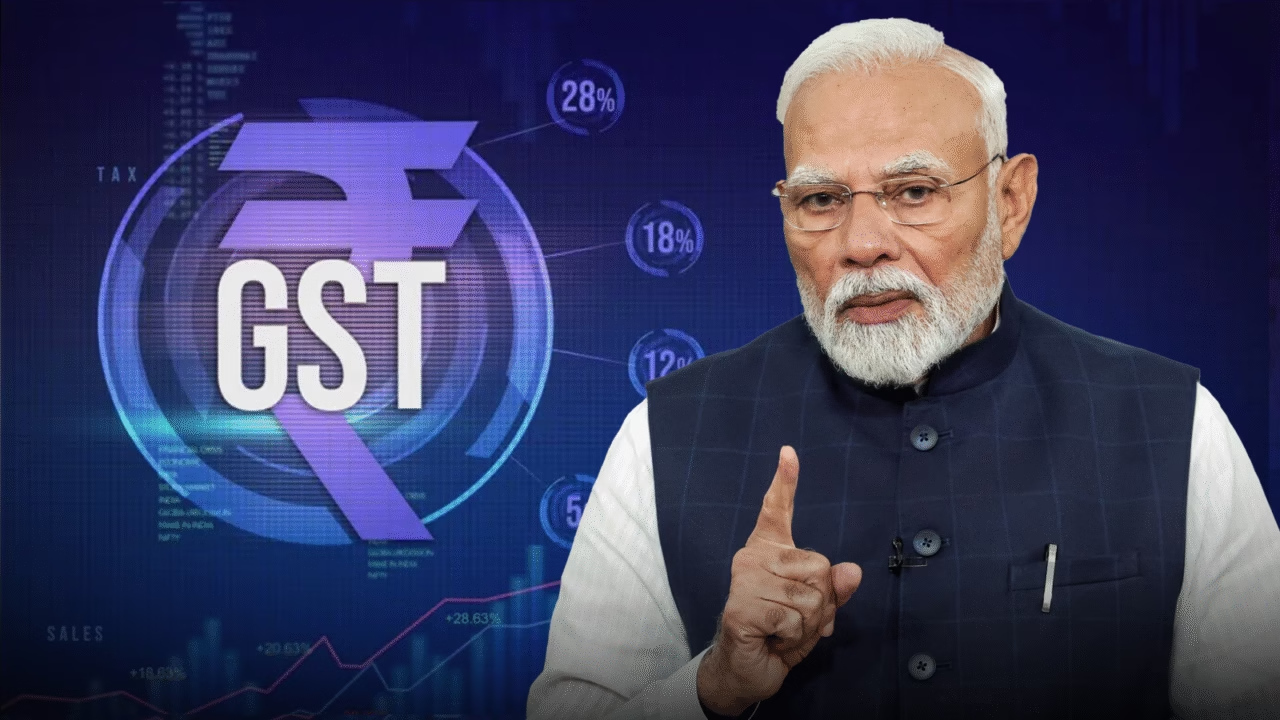Prime Minister Narendra Modi has reaffirmed the government’s dedication to enhancing the efficiency, transparency, and overall benefits of the Goods and Services Tax (GST) system for every segment of society. In a recent address regarding the GST reform, PM Modi highlighted that these changes are intended not just to simplify the tax process but also to provide direct advantages to the average citizen, farmers, and the middle class.
A Streamlined GST Framework
A major focus of the GST reforms is simplification. The existing tax system, while thorough, has faced long-standing criticism for its complexity, characterized by numerous tax brackets and compliance demands. With the new structure, the government intends to alleviate confusion, making it more straightforward for both businesses and consumers to navigate the system. PM Modi noted that a more straightforward GST framework will ease compliance burdens for small enterprises and traders, ultimately leading to lower prices for goods and services for consumers.
This simplification also aims to establish uniform tax rates across different products and services. Such a move will help eradicate cascading tax effects, where taxes were previously imposed on top of other taxes, ensuring that consumers pay a just price while businesses encounter fewer compliance challenges.
Empowering Farmers and Rural Economies
Farmers, an essential part of India’s economy, are poised to gain significantly from the GST reforms. By simplifying the taxation of agricultural inputs, machinery, fertilizers, and other necessities, the government seeks to lower production costs. Reduced input expenses can lead to increased profitability for farmers and greater affordability for consumers.
PM Modi pointed out that the reforms will enable smoother transportation of agricultural products across state lines by minimizing the necessity for multiple tax submissions and permits. This will improve market efficiency, decrease waste, and allow farmers to tap into a wider market for their goods.
Supporting the Middle-Class and Small Enterprises
The GST reform is also aimed at aiding the middle-class and small businesses, which are crucial to the Indian economy. By lowering tax rates on common goods and services, these reforms will boost disposable income for middle-class families. Small and medium enterprises (SMEs) will gain from easier compliance, allowing them to concentrate more on growth and innovation instead of dealing with complicated tax regulations.
PM Modi highlighted that the government’s strategy is not solely focused on taxation but on creating an environment where businesses can flourish and consumers can spend freely. The goal is to establish a win-win scenario that fortifies the overall economy.
Improving Transparency and Efficiency
A significant aspect of the GST reforms is transparency. The government intends to introduce advanced digital solutions that simplify tax filing and minimize the potential for errors or disputes. By utilizing technology, GST compliance will become more user-friendly, enabling taxpayers to monitor their payments and claims effortlessly.
Efficiency in tax administration also guarantees better resource allocation and enhances public services. PM Modi emphasized that a well-functioning GST system ultimately serves the citizens, as the revenues generated are utilized to support infrastructure, healthcare, education, and other vital services.
PM Modi’s comments regarding the GST reform highlight the government’s goal of creating a fair, efficient, and advantageous system for every segment of society. The changes are designed to simplify taxation, lower expenses, and foster economic development, benefiting everyone from farmers to the middle class and the general public.
By prioritizing simplification, transparency, and efficiency, the GST reforms seek to bolster India’s economic structure while ensuring that both citizens and businesses enjoy real advantages. As these initiatives are implemented, there is hope that they will cultivate a more inclusive and thriving economy, where every participant—whether a farmer, a small business proprietor, or a middle-class family—can feel the positive effects of the reform.

